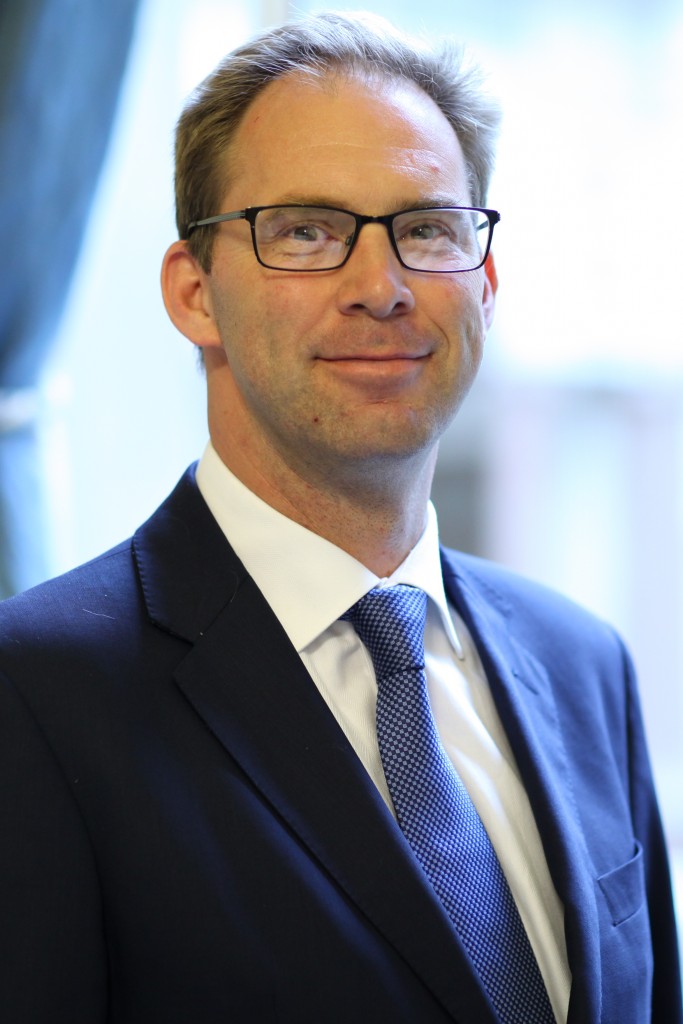From Oct. 7-9, I had the pleasure of visiting Kazakhstan. I am the sixth U.K. government minister to visit Kazakhstan since the historic visit by Prime Minister David Cameron in 2013. This number of ministerial visits confirms the growing ties between Kazakhstan and the U.K. We are developing our relationship in numerous spheres for the mutual benefit of both our nations.

I’d like to begin by taking this opportunity to congratulate Kazakhstan on the occasion of the 550th anniversary of Kazakh Statehood. I know how important its rich history and traditions are for Kazakhstan. It is the same for the U.K. This year we are proud to celebrate the 800th anniversary of the Magna Carta, a document that set out the core principles of freedom, justice and the rule of law. We were delighted that Prime Minister Karim Massimov was able to take part in the Global Law Summit in London earlier this year, where the Magna Carta principles were one of the central themes. It is only by remembering our history that we can help build a successful future.
Kazakhstan has developed rapidly, becoming a leading emerging power in the region after just 24 years of independence. But, as we all know, continuing success means continuing along the path of development.
That is why I warmly welcome the transformation process launched by Kazakh President Nursultan Nazarbayev this year. We stand ready to share our experience, skills and knowledge to support Kazakhstan on its way towards becoming one of the 30 leading global economies by 2050.
This September, Lord Maude, my colleague responsible for promoting U.K. trade and investment, visited Kazakhstan. Whilst here, he discussed how to support the government in civil service reform and in other sectors. The civil service plays a key role in any effective government’s work. For that reason, we fully support Kazakhstan’s decision to embed structures and systems that will ensure the brightest and the best get ahead. This demonstrates Kazakhstan’s commitment to achieving ever more transparent and accountable governance.
The U.K. and Kazakhstan share many common challenges and goals. For example, one of my areas of responsibility is counter terrorism. Both the U.K. and Kazakhstan are having to think carefully about further steps in countering terrorism and extremism.
Countering ISIL is one of the priorities for Prime Minister Cameron. Speaking at the 70th session of UN General Assembly, he underlined the need for all countries to work together in order to degrade and defeat ISIL. This work doesn’t mean only military operations. It also means “the fight for hearts and minds.” We need to ensure our youth are inspired and aspire to a better future.
That is why the U.K. welcomes Kazakhstan’s support for Afghanistan, especially to its youth. I’m sure that young Afghans who received the chance to get higher education due to Kazakhstan’s assistance will be a driving force in achievement of a prosperous future for their homeland. It is the young men and women of today who can be the leaders in economics and politics in Afghanistan in the coming years.
A number of these key issues on the international agenda were discussed during my visit to Astana at the Strategic Dialogue talks. These talks were proposed during the first visit by a U.K. prime minister to Kazakhstan in 2013. I believe they are becoming an increasingly effective bilateral cooperation mechanism.
Finally, I am delighted that President Nursultan Nazarbayev will be visiting London shortly. His visit will move forward and deepen the U.K.’s partnership with Kazakhstan.
The author is the Parliamentary undersecretary of state at the Foreign and Commonwealth Office.
